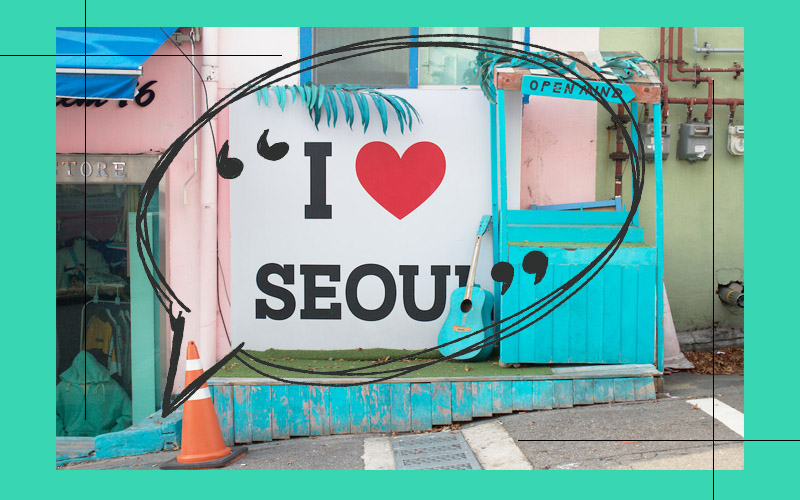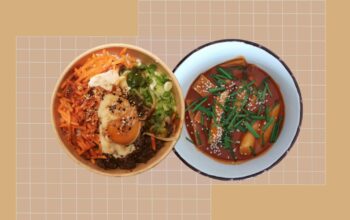Traveling to Korea? Speak Korean!
When you travel to a foreign country, you get to experience many things. You get to stroll around unfamiliar places, immerse into authentic cultures, meet diverse people, and taste native food to name a few. And along with all of these experiences are the learnings that you acquire along the way—from how to get to one place to another to the dos and don’ts.
Among the many valuable things that can be picked up on a travel to a foreign country is learning a new language. This is especially true to non-English speaking nations. Now, Korea may not be totally non-English speaking as some locals can engage in conversation using the language, however, majority of the population—well at least the people you will likely get to interact with like store employees and market vendors—are more comfortable speaking in their native language.
Initially the thought of wandering around a nation where English is not widely spoken can be a bit intimidating, but on second thought, getting to speak and actually understand the language of the country you will be visiting will give the adventure more color. To travel in itself is for the adventurous so why not gear up and make the extra effort to take this particular road and you will surely have an immersive travel experience in return. After all you can’t just annyeonghaseyo your way through this whole trip that is why it is better to be familiar with some common phrases that will surely be of help to you.
Do not stress yourself out though. You do not need to be fluent to survive in Korea, even just knowing these handy Korean phrases will already do.
An-nyeong-ha-se-yo (안녕하세요) — Hello / Goodbye
This phrase needs no introduction—probably the one Korean phrase that almost everyone is familiar with. This greeting is the simplest and easiest thing to say to a local.
Annyeonghaseyo would suffice when bidding goodbye, but if you want to be specific you can say an-nyeong-hi-gye-se-yo (안녕히 계세요) when you are leaving the premises and the other person is staying, or an-nyeong-hi-ga-se-yo (안녕히 가세요) when you are staying and the other is leaving.
Jae ee-reum-un [your name] ee-eh-yo — (제 이름은 [your name] 이에요) — My name is [your name].
Introduce yourself using this phrase.
Ee-reum-ee mwo-ye-yo (이름이 뭐예요?) — What is your name?
Get to know the local you are speaking to by asking this phrase.
Ban-gap-sum-ni-da (반갑습니다) — Nice to meet you
This pleasantry is said right after being introduced to or meeting someone.
Kam-sa-ham-ni-da (감사합니다) — Thank you
Next to annyeonghaseyo, this phrase is the bare minimum in attempting to speak Korean. You will probably be mentioning this as much as the former.
Chun-mahn-eh-yo (천만에요) — You’re welcome
It is not often for Koreans to respond to a thank-you, however, you can blurt this phrase out if you want to be polite.
Ah-nib-nee-da (아닙니다) — It’s nothing
This phrase can also be said as a response to a local’s gratitude.
Mi-an-ham-ni-da (미안합니다) / Chway-seong-ham-ni-da (죄송합니다) — Sorry
In cases of untoward incidents, little accidents, or perhaps you need to excuse your behavior, any of the phrase would suffice as both almost have the same weight. Almost. The former can be said for trivial, easily forgiven mistakes, but if you have a little bit more to be sorry for, it is better to use the latter.
Jam-shi-man-yo (잠시만요) / Jam-kkan-man-yo (잠깐만요) — Excuse me
This is your go-to phrase at times when it is too crowded on the train or in a bus especially during rush hour. Arguably more effective than the universal “excuse me,” blurt this out and your fellow commuters will surely make way for you. This phrase is also applicable in whenever and wherever its English counterpart is used.
Ne (네) — Yes
Aniyo (아니요) — No
Gwen-chan-ah-yo (괜찬아요) — It’s okay
[Place] oh-di-ye-yo? ([Place] 어디예요?) — Where is the [place]?
Yes, there are numerous apps you can use to locate a place and how to get there, but still nothing beats asking locals for directions. After all they are the ones who live in the area. Be lost no more and find the right direction by saying this phrase.
Jik-jjin gah-seh-yo (직진 가세요) — Go straight ahead
Oh-reun-jjok gah-seh-yo (오른쪽 가세요) — Go right
Wen-jjok gah-seh-yo (왼쪽 가세요) — Go left
Yoh-gi-eh (여기에) — Here
Yoh-gi-yo (여기요) — Over here
While pointing to yourself or with a raised hand, this phrase will get someone to come to you.
Gil-eul ilh-uht-suh-yo (길을 잃었어요) — I’m lost
Use when it is already hopeless to find the directions on your own and when you don’t know where you are.
Ju-seh-yo (주세요) — Please give
Use this phrase when making a polite request. This can stand alone, perhaps while or after pointing at whatever you want by your finger, or attach this after you verbally specify what you want. Example, if you want water, which is mul (물) in Korean, you can say “Mul jusehyo.”
Jal mo-go-sseum-ni-da (잘 먹었습니다)) — That was delicious
It is heartwarming for people to receive compliment for their cooking and Koreans are no exception to this. So be sure to say this phrase after having that delicious meal, and you will surely warm their hearts with this gratitude.
[Object] ees-uh-yo? ([Object] 있어요?) — Do you have [Object]?
A phrase to use to specifically tell the store employee of what you want.
Ol-ma-ye-yo (얼마예요) — How much is this?
Because when in Korea you will be visiting lots of stores and cafés and do a lot of shopping, it can be a thrill, or if ever the store does not post the price of their products, to ask for prices by saying this phrase rather than its English counterpart.
Typically, sellers will just reach for their calculator and show you the price. But in case they replied in Korean, it is better to be familiar with Korean numbers.
Korean numbers have two sets: Native Korean (hana, dul, set) and Sino-Korean numbers. Generally for expressions relating to money, the latter is used.
Sino-Korean Numbers
Il (일) — 1
Ee (이) — 2
Sam (삼) — 3
Sa (사) — 4
Oh (오) — 5
Yuk (육) — 6
Chil (칠) — 7
Pal (팔) — 8
Gu (구) — 9
Ship (십) — 10
Baek (백) — 100
Chon (천) — 1000
Man (만) — 10000
If you are a little hesitant to spend too much won, or you are just thrifty by nature, you can politely ask for a discount by saying kka-kka-ju-se-yo (깎아주세요). But remember that you can only do this in local and traditional markets.
Bonus phrases: ssa-yo (싸요) “It’s cheap” / bi-ssa-yo (비싸요) “It’s expensive”
Han-guk-mal jal mot-hae-yo (한국말 잘 못 해요) — I don’t speak Korean very well
This is when your attempt at speaking Korean made locals think you are fluent. Politely admit that you can only speak and understand a little before they start talking back to you in Korean so as to avoid starting a one-sided conversation.
Yon-guh ha-se-yo (영어 하세요) — Do you speak English?
Of course you are going to run out of Korean phrases that you can speak and the locals are going to tell you words you cannot understand, and it is okay, just put it out there at the start of the conversation. Being able to find a local whom you can speak with in English will more likely assure you that your conversation will go two-way.
On a bigger picture, learning a new language does not only result to an upgraded language skill but will also help you in opening doors to many opportunities and in introducing diversity to the connection you can make with people from a land that is not your own.
*What’s your favorite Korean phrase? Share them in the comment section below.
Stay Connected While You’re in Korea: Book your Pocket WiFi
She loves music that she needs background songs 24/7. She watches TV like a dutiful binge-watcher. And she writes mostly about the music she listens to and the shows and films that she watches.





